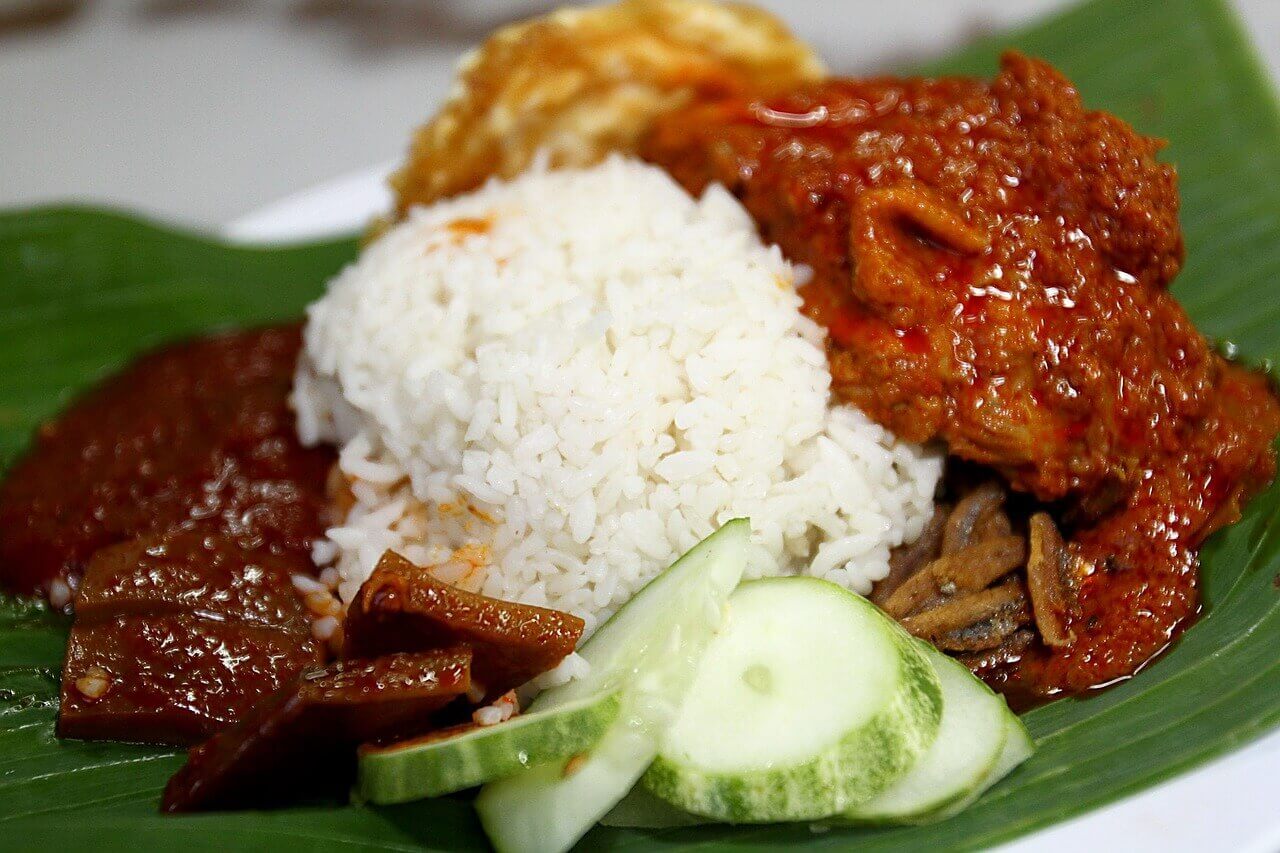If you’re a foodie, you’ve probably heard of nasi lemak. But if you’re not familiar with this delicious dish, buckle up because you’re in for a treat. Nasi lemak is a rice dish that’s traditionally served with coconut milk, pandan leaves, and a variety of side dishes like fried anchovies, peanuts, boiled eggs, and spicy sambal. It’s often called the “national dish” of Malaysia, but how did this humble meal become the nation’s go-to grub? Let’s take a journey through the history and popularity of nasi lemak.
First, let’s start with the basics. “Nasi” means rice in Malay, and “Lemak” means rich or creamy. So, nasi lemak is essentially “rich rice” – and boy, is it ever! The coconut milk and pandan leaves give the rice a fragrant, creamy flavor that’s simply to die for. But it’s not just the rice that makes nasi lemak so popular. It’s also the variety of side dishes that you can choose from.
Nasi lemak is a popular dish in Malaysia, Singapore, and other parts of Southeast Asia. It has also gained popularity in other parts of the world, particularly among Malaysians and other Southeast Asian communities living abroad.
In addition, nasi lemak has a unique and aromatic flavor thanks to the use of coconut milk in the rice and the spicy sambal sauce that is typically served with it. These flavors have helped to make nasi lemak a popular choice among foodies and those looking for a taste of Southeast Asian cuisine.
Do you want fried anchovies? No problem. Boiled eggs? You got it. Spicy sambal? You betcha. Nasi lemak has something for everyone, which is probably why it’s so beloved by Malaysians. One reason for its popularity is that it is a flavorful and satisfying meal that can be eaten at any time of the day, it’s the ultimate comfort food, and it’s perfect for breakfast, lunch, dinner, or any time in between. In fact, nasi lemak is so popular in Malaysia that it’s often served at events and celebrations. It’s the go-to dish for any occasion.
Nasi lemak has also gained popularity through its presence in popular culture, including appearances in movies, television shows, and music videos. This has helped to introduce the dish to a wider audience and contributed to its fame beyond Malaysia.
But how did nasi lemak become the national dish of Malaysia, you ask? Well, it’s a bit of a mystery. Some say it dates back to the days of ancient Malay warriors, who would pack nasi lemak in their war baskets as a portable and nourishing meal. Others believe it originated with the Malaysian royal courts, where it served as a delicacy. Still, others think it may have been developed by Malaysian farmers, who used coconut milk as a cheap and readily available alternative to dairy.
No matter where it came from, one thing is for sure: nasi lemak has stood the test of time. It’s a beloved staple of Malaysian cuisine, and it shows no signs of slowing down. In fact, nasi lemak has even made its way into the hearts (and stomachs) of people all around the world. It’s hard to resist its creamy, coconutty goodness, after all.
If you’re planning a trip to Malaysia, be sure to give nasi lemak a try. You can find it at almost any restaurant or food stall, and it’s usually served with a variety of side dishes to choose from. Trust us, your taste buds will thank you. And who knows – you might just fall in love with Malaysia’s national dish, just like the rest of us. So, the next time you’re in Malaysia, be sure to indulge in a plate (or two) of nasi lemak. Your taste buds (and Instagram followers) will thank you.







